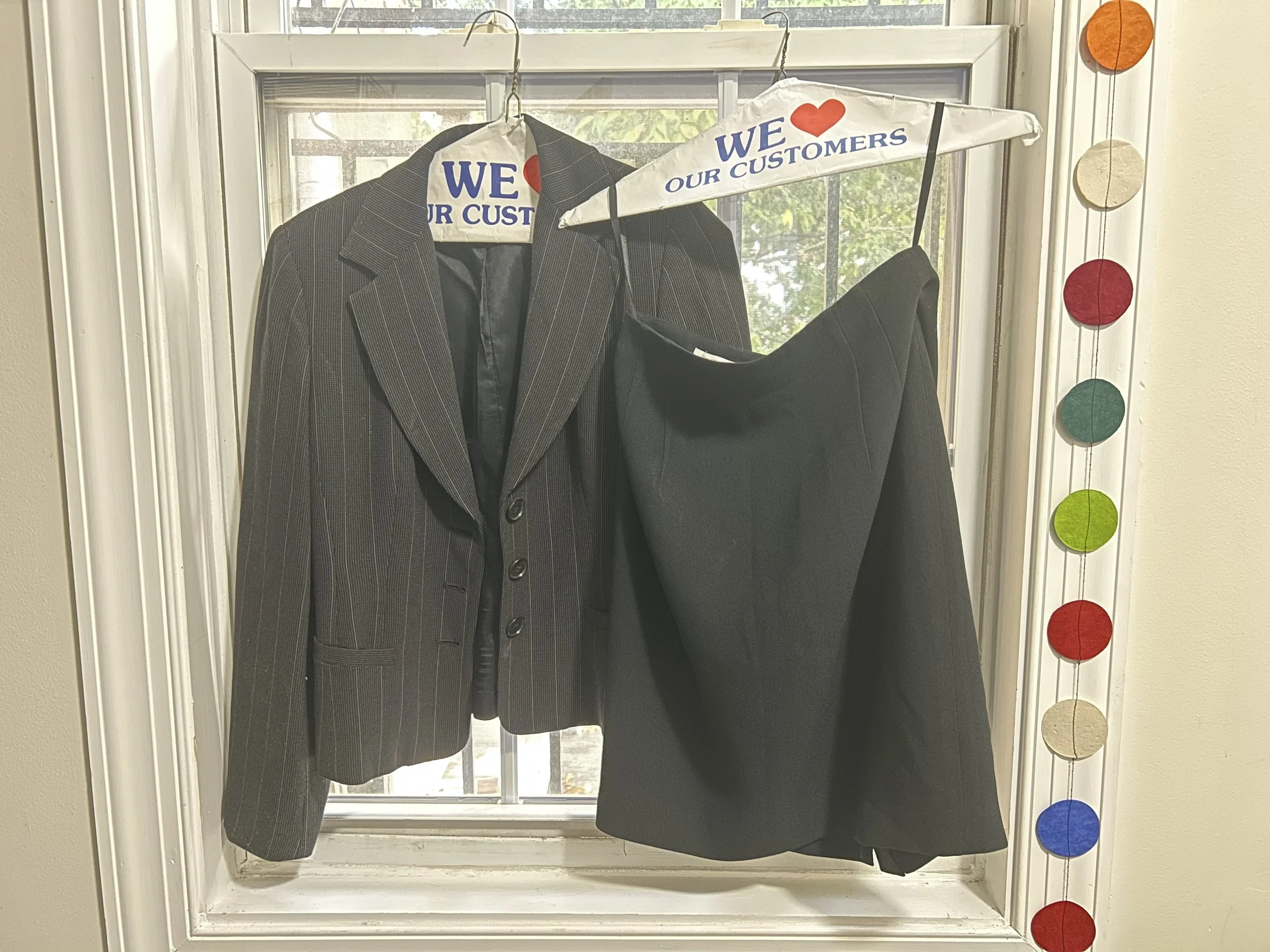Fashion is Political: Hand-me-down
Photo by Aanika Sawhney
This is my first week in Washington, D.C., the nation's capital and current center of chaos, as a reporter credentialed with the same press access as major news outlets. There is so much to talk about — and amidst it all, I choose fashion.
In this heightened time of polarization, as the divide across the aisle sharpens into a steep ravine, I’ve heard the phrase, “I’m not political,” or “It's not political,” far too often for my comfort. In navigating these national separations, many say they opt out of the conversation. However, I’m not convinced because our daily lives are political, even down to the shoes we put on in the mornings.
In the past year, moving from California to Northwestern’s Evanston campus and now to D.C., it has become increasingly clear that fashion, influenced by climate and culture, tells a story about not only an individual’s self-expression, but also their surroundings.
This week, I went to Capitol Hill for the first time as a journalist. Among other decisions, like my morning alarm and breakfast, my outfit was carefully calculated for what felt like the world's first impression of me.
I wore a Nordstrom black pleated blouse as a base, and over it I added my mom’s black button-down blazer with light grey dashed pinstripes, and her black skirt, which landed just below my knees. Down to my toes, I wore ankle-length black Frye boots, which I got second-hand for a steal on Poshmark.
The pieces I have to lean on the most in my closet are my mom’s corporate hand-me-downs. Her years of experience and sometimes outdated clothing silhouettes are behind me as I start my reporting.
In one sense, it is encouraging to wear the same clothing that my mom had at my age, and stepping into her pieces feels very adult. In another, it’s sustainable — older labels are built to last with better quality materials than what I have seen browsing from big brands today.
Maybe this is a hot take, but Zara and Aritzia fabrics feel cheap between my fingertips, and their big price tags don’t reflect the much lower manufacturing costs. Women’s blazers alone range from $50 to $300 across most retail stores. Fashion signals a person's lifestyle, sometimes what bands they like and other times how much money they have.
Most blatantly, hand-me-downs are affordable; and to get new clothing for free is meaningful. Hand-me-downs are political because they are priceless, and they can demonstrate both a need and a willingness to accept clothing from others. Independence is a political pillar on which the United States is built, and this manifests in capitalism-centered expectations of expensive, trendy clothing in many situations, especially in the business casual world.
A 2024 study from the Journal of Poverty found that in Switzerland, the type of distribution system for second-hand goods contributes to the excitement or shame associated with receiving hand-me-downs. This is a result of consumption as a cultural practice, which is deemed a “central mode of social integration,” meaning social pressures to buy new suffocate Western countries.
Medill sophomore Katarzyna Nguyen, my colleague on the Hill, wore a navy blue blazer and skirt set on our first day together. She was able to pick up the gently used outfit for free from NU’s Career Advancement ‘Cats Closet.
“Being a first-generation college student, I didn't really know where to turn and what exactly to wear for a more professional setting,” Nguyen said. “I was a little bit lost at first, but then I had those resources so easily accessible.”
She says her outfit from ‘Cats Closet is one of her favorites, especially since her experience getting it was so smooth.
Making a conscious effort to exchange clothing within a community is an act of environmentalism against society’s conditioned, rapid consumer pace. It reestablishes fashion from profit-based interaction into a personal one. On campus, NU’s ‘Cats Closet typically opens the third or fourth week of the quarter.
Outside of business and formal styles, I’m used to borrowing my mom’s clothes or swapping with friends. It's one of my favorite ways to get new, unique styles, but this isn’t a low-level call to just “destigmatize hand-me-downs.” The experience of being judged and treated differently based on what you wear is a very real one for many. Through my worldview, especially with norms and trends from Gen Z, however, conformity isn’t in.
It's boring to see everyone in the same thing. While different aesthetics do exist as shaped by culture and brands, individualism, maybe seen through upcycling or styling choice, is much more celebrated. Unique fabric textures, like distressed ones, give a huge leg up to hand-me-downs.
Aanika Sawhney is in Washington, D.C., reporting for the Medill News Service, covering Immigration and Demographics. Her columns use her real experience and on-the-Hill observations to establish the intertwined nature of what we wear on our bodies to historical and ongoing world politics.

